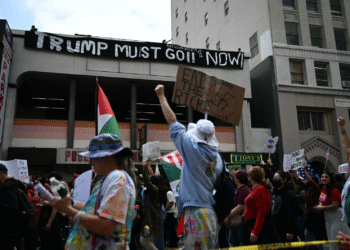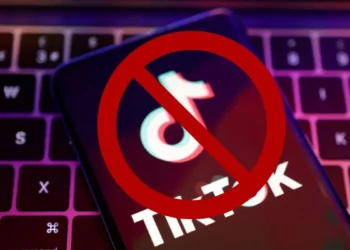In a historic and controversial move, President-elect Donald Trump was sentenced Friday morning in the Manhattan hush money case, making him the first convicted felon to be elected to the White House. However, the punishment for his crimes? It’s none at all.
Last year, a New York jury convicted Trump on 34 counts of falsifying business records to cover up a payment to adult film star Stormy Daniels during the final days of the 2016 presidential campaign. The conviction, a Class E felony, carried a potential penalty of up to four years in prison and thousands of dollars in fines per count.
However, instead of imposing a prison sentence, fines, or probation, New York Justice Juan Merchan issued an “unconditional discharge.” The ruling ensures that Trump will face no jail time or financial penalties for his conviction.
“This court has determined that the only lawful sentence that permits entry of judgment of conviction without encroachment on the highest office of the land is a sentence of unconditional discharge,” Merchan said during the sentencing.
What is an “Unconditional Discharge”?
An unconditional discharge essentially means that the case is over, the conviction stands, but there are no further consequences attached to the crime. Barbara McQuade, a former U.S. attorney and law professor at the University of Michigan, explained that this means “no prison time, no fine, no community service, no probation, no nothing.”
“This resolution allows the conviction to stand and preserves the sanctity of the jury’s verdict, but ensures that there are very limited consequences stemming from the conviction,” said Sarah Krissoff, a former federal prosecutor.
While this sentence removes direct punishments like jail time or fines, there are still some consequences tied to a felony conviction. For instance, in certain states, a convicted felon may lose their right to vote or own a firearm. Trump, for example, is barred from purchasing a firearm in both New York and Florida, although he was still able to vote in the presidential election.
“There is always a loss of rights in connection with a conviction,” Krissoff noted.
How Common Is an Unconditional Discharge?
While an unconditional discharge may seem rare, it is not entirely unheard of, particularly in lower-level cases. Retired New York trial judge Jill Konviser explained that it is “uncommon — but not unheard of — in felony cases.” Criminal defense attorney Jeremy Saland referred to it as “incredibly rare,” and stated that he had never personally offered it as a prosecutor or discussed it as a defense attorney.
In most cases, a discharge is conditional, meaning that the defendant must meet certain requirements such as community service, paying fines, or avoiding further legal trouble. However, in Trump’s case, the decision was made to grant an unconditional discharge, a resolution generally applied to those without prior criminal histories.
Henry Pontell, a sociologist with over 30 years of studying white-collar crime, admitted he had “never heard of it,” emphasizing that this type of ruling is extremely rare, especially for felony cases with multiple charges decided by a jury.
What Other Sentences Could Trump Have Received?
Given the nature of the charges, Justice Merchan had other sentencing options available. Trump could have faced home confinement, probation, or community service. However, with Trump’s presidential inauguration just 10 days away, there was little time for him to complete any of these punishments before his impending presidential immunity would come into effect on January 20.
This decision marks an unprecedented moment in American legal history, leaving many to question the fairness and implications of such a lenient sentence for a high-profile figure like Trump. While an unconditional discharge may be a rare legal option, it highlights the complexities and nuances of the judicial system, especially when it comes to individuals in positions of significant power.









